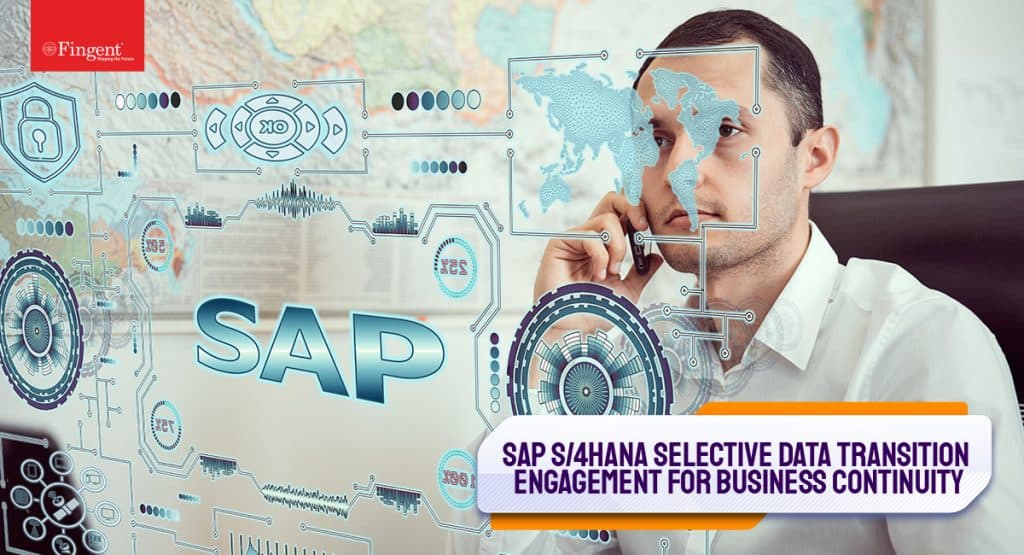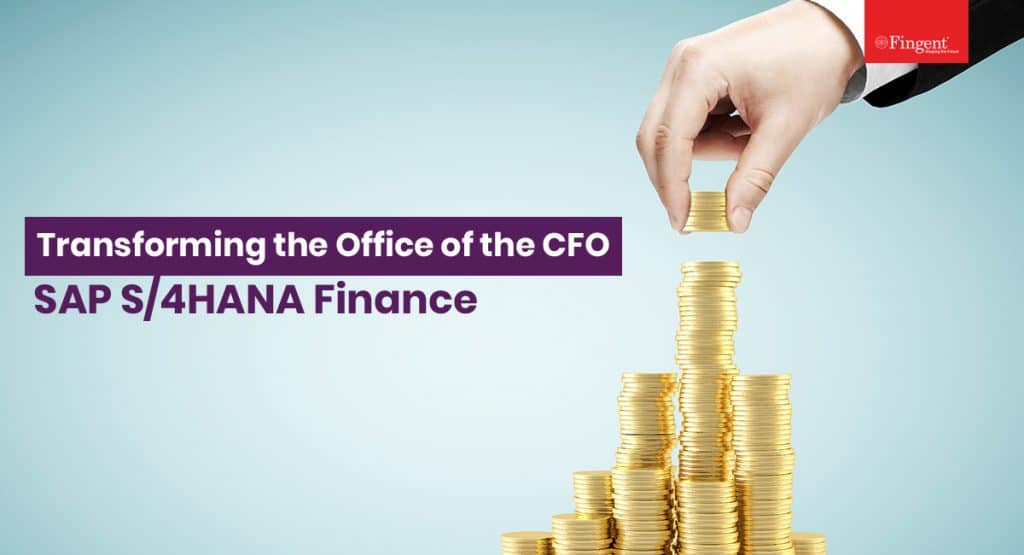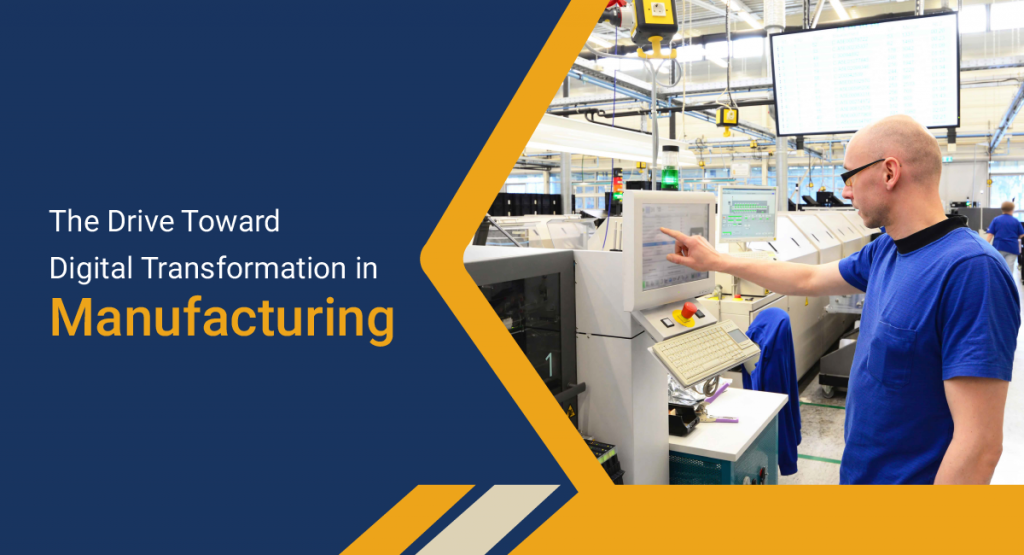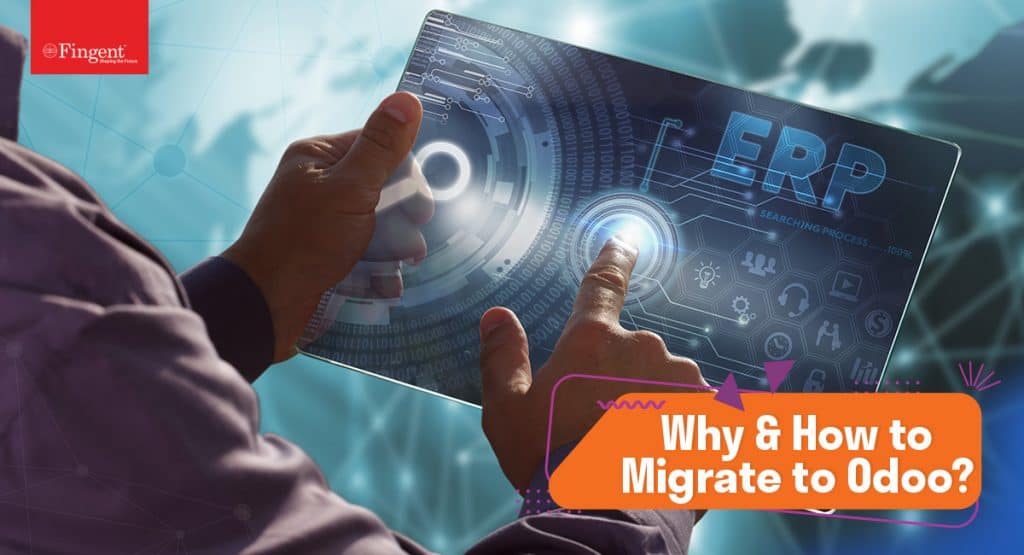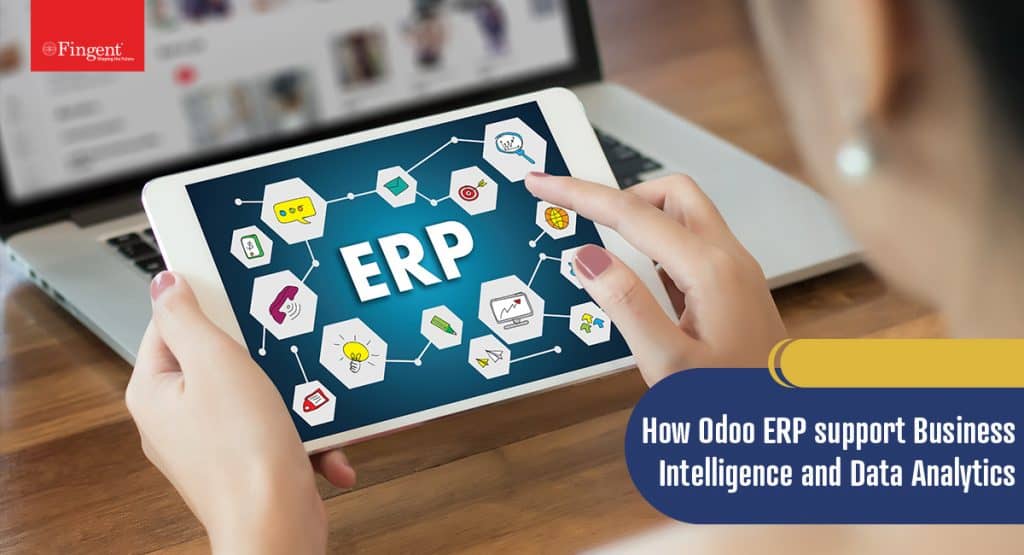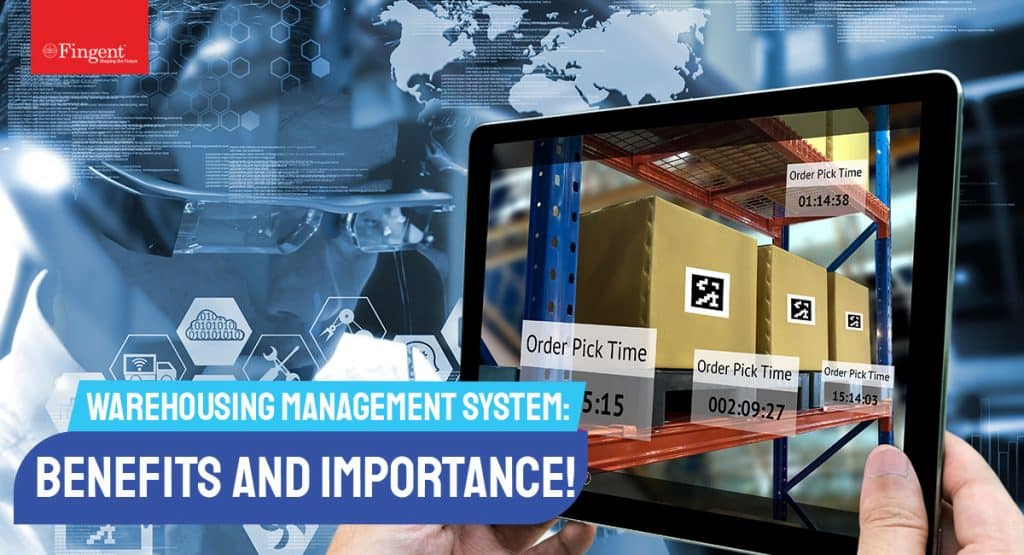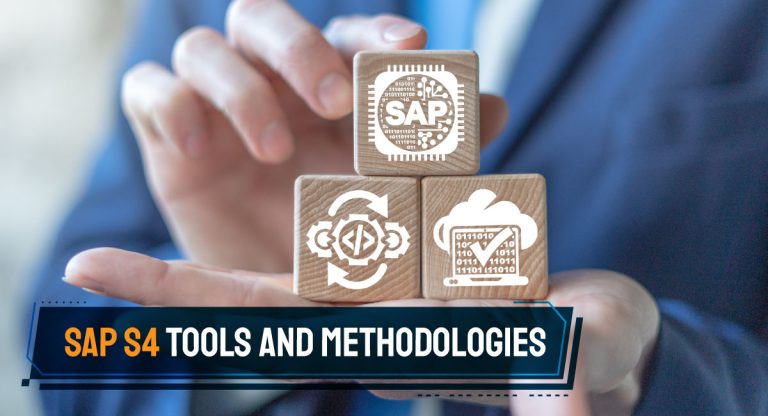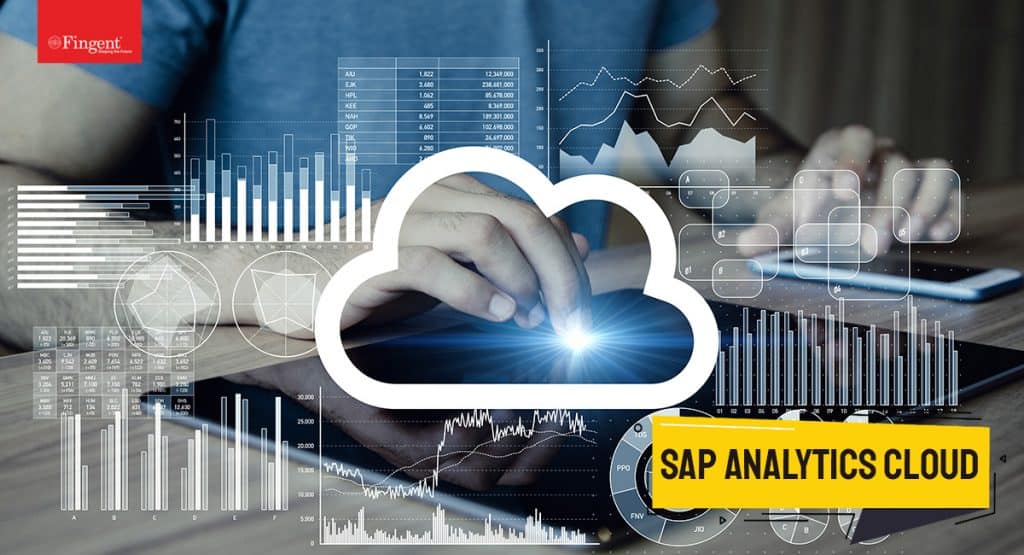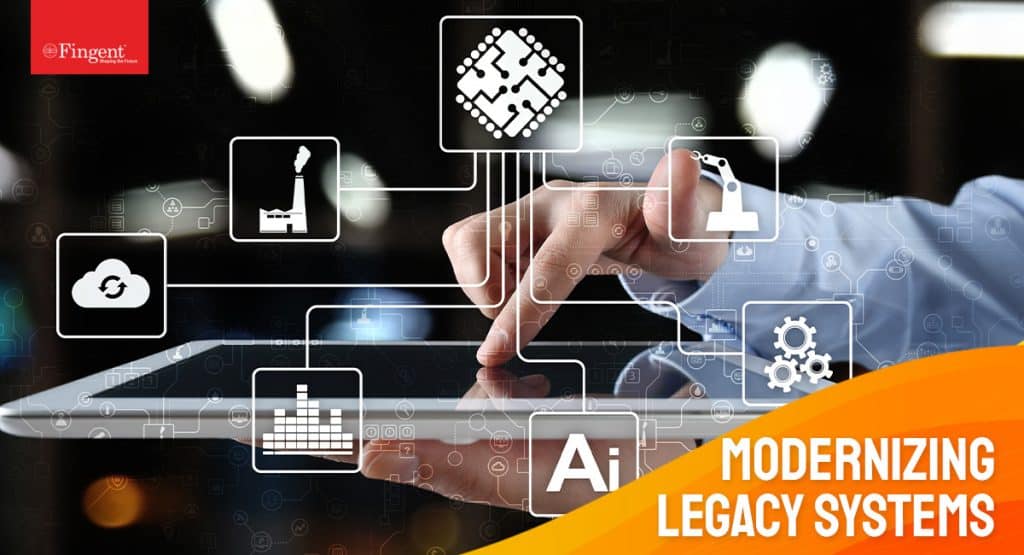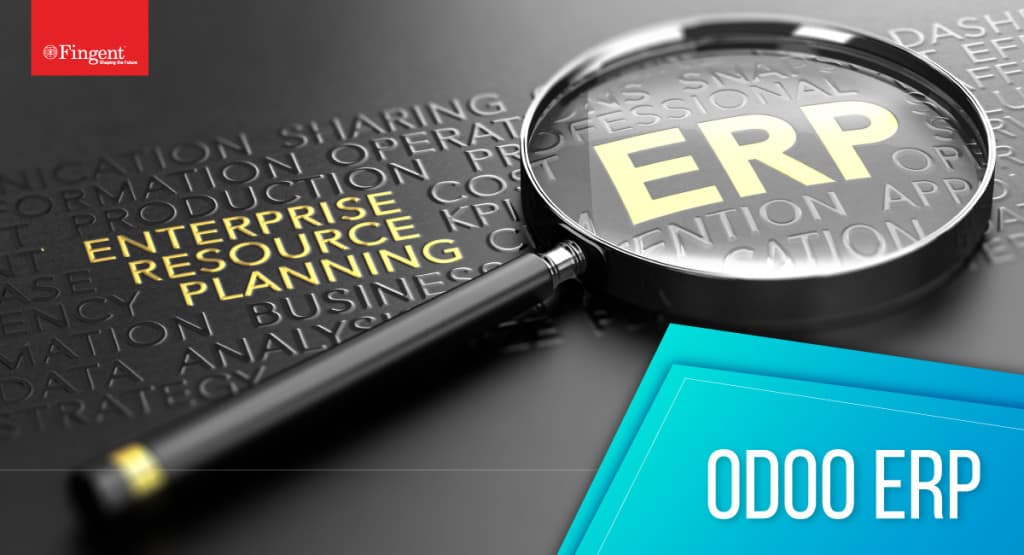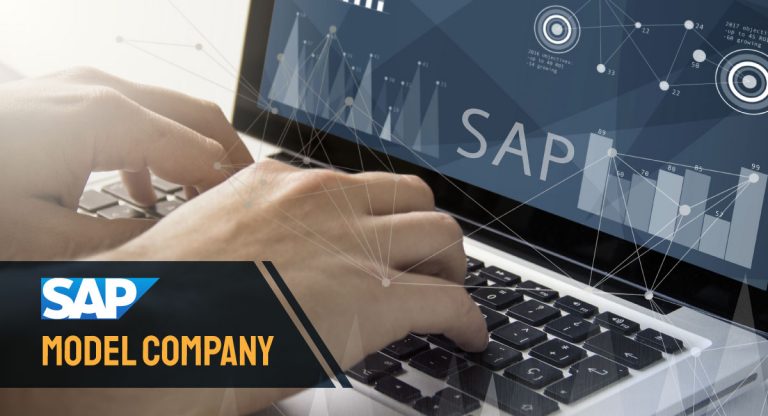Category: SAP
In the current circumstances where industries are experiencing periods of intense change, organizations need a new paradigm. They need a product that must be capable of reframing the problems which were addressed by previous solutions or that targets a new set of problems. They also need a partner who can effectively deploy the solution and provide assistance whenever there is a need. SAP created a solution that addresses a set of existing problems through the method of reframing them, thereby presenting a novel way of addressing these issues in the form of BTaaS-Rise with SAP. Rise with SAP helps enterprises gain digital efficiency and flexibility.
Do you feel this pathway to intelligence is formidable and elusive? If so, rest assured that we, at Fingent, understand the challenge you face. This blog will help you understand what the benefits of the initiative are, how we approach it, and how we can help you deploy these services.
What is BTaaS-Rise with SAP
BTaaS (Business Transformation as a service) Rise with SAP is a suite of services and products. It is designed to accelerate the transformation into creating an intelligent enterprise. It is a direct response to the challenges in the steady acceleration of change in all areas of business.
As BTaaS, Rise with SAP can help businesses remain resilient and adapt to digital transformation quickly despite cutthroat competition in their respective industries. It offers these five components to build an Intelligent Enterprise:
- Technical Migration tools and services
- S/4 HANA cloud
- SAP business technology platform
- Business process intelligence
- SAP business network starter pack
Read more: Ensure Business Continuity with SAP S/4HANA Selective Data Transition Approach
How Can Your Business Benefit from Rise with SAP?
Rise with SAP allows you to be in control. You can choose where to begin your journey and you can design a suitable strategy that fits your business.
Let us now examine the twofold benefit of Rise with SAP:
Value from differentiating business capabilities and outcomes
This value has a significant impact on shareholder returns. This impact ensures long-term sustainability with purpose. Here are the top three benefits for your business:
- Top line: This includes your strategy, employees, and your products. You can improve your top line by innovating and establishing new revenue streams and business processes.
- Bottom line: You can improve operational efficiencies by eliminating repetitive tasks. You can save time and resources by allowing intelligent ERP to function as a co-pilot providing you with suggestions based on business process patterns and employee behavior.
- Green line: Rise with SAP will help you understand, monitor, and optimize environmental and social impact throughout the value chain. This will help minimize wastage, improve safety, build supplier compliance, and attain resiliency.
Value-driven from cloud delivery capabilities
This is essentially the incremental value. It allows enterprises to maximize value, minimize transformation risk, and reduce cost to the extent possible. Explore the top three benefits for your business:
- Facilitates process excellence: Using process discovery reports, migration tools, and services and other capabilities your enterprise becomes transformation ready.
- Improved service experience: Rise with SAP is a Business Transformation as a service; a simpler support model. Thus, you have the benefit of an improved service experience.
- Operational resiliency: You can hyperscale infrastructure with inbuilt full-stack security.
- Lower TCO: It allows you to use flexible user-based subscriptions and leverage hyperscale economics to lower TCO.
But what do you need to gain these capabilities? Well, you need these three things:
- Technology that can support your company processes
- A cloud provider
- A capable and efficient partner who can help you take greater advantage of Rise with SAP
Read more: It’s Time To Transform Your Business For The New Digital Age – Rise With SAP
Role Of Fingent in Leveraging These Services
Fingent is geared to work with enterprises under the framework of Rise with SAP. As SAP’s Silver Partner, we have a credible background in helping enterprises uncover business inefficiencies and redesign their processes to fit their needs. With deep domain expertise, we help them align and achieve organizational goals at optimal costs.
We understand the difficulties some organizations face in making decisions with regard to business transformation. Our program is designed precisely for such organizations. As a trusted Silver Partner, Fingent is here to guide you through every step of this exercise.
We start by developing a deep understanding of your business and your objectives. We then use our expertise in SAP to devise a strategy for a comprehensive business transformation strategy. As a seasoned SAP Silver Partner, Fingent combines its expertise with a deep understanding of user experience to maximize your operational efficiency.
Our approach can analyze complexities around your business processes and adopt a user-first approach. This can drive a successful implementation of Rise with SAP that leads to increased user adoption.
As suggested by Rise with SAP program, our engagement starts with a process and system audit. This will form the backbone for subsequent phases of the transformation process. Fingent will be with you at every step. We work with your business leadership, key stakeholders. We involve key influences to ensure the successful completion of your business transformation.
Read more: How Fingent Helps CFOs Gain New Insights and Reliably Enable Key Decisions
We Can Help Your Business RISE!
Rise with SAP is another possibility for us to empower clients with the help of the SAP portfolio. In close coordination with SAP, we create tailor-made solutions that increase the value of this initiative for you.
To do this, we combine SAP capabilities with products and services that we have developed ourselves to individualize for your specific needs. This is how we at Fingent ensure that you receive a truly customized solution – one that addresses specific challenges in your specific environment. This will generate the best possible value for your business.
You can rely on us as your sole contractual partner and thus avoid needless complexities. We offer everything from advisory services to application management. All this can be done at your own pace, with your budget, and according to your business needs.
We can smoothen the path of transformation for our existing customers. For our new customers, we can leverage the full potential of Rise with SAP and customize it for your advantage.
Talk to our experts at Fingent and together we will find ways to make the best out of Rise with SAP for you!
Stay up to date on what's new

Featured Blogs
Stay up to date on
what's new



Talk To Our Experts
The greatest business challenge of our time is the steady acceleration of change in all areas of trade. The pandemic has only accelerated these digital shifts. Transforming your business is necessary to stay relevant and competitive. The scale of digital challenges can be daunting to businesses. Understandably, some businesses may feel lost in the current digital maze. But, to stay agile and competitive, business leaders must strategically transform their business. Early this year, SAP announced a new service called “Rise with SAP.” This blog attempts to clarify what is included in Rise with SAP and how it can transform your business.
What is “Rise with SAP”?
Rise with SAP is a BTaaS (Business Transformation as a Service). The objective of this product is to accompany and accelerate business transformation step by step.
Rise with SAP is a single subscription contract. It provides access to a variety of tools and services that focus on assisting with your business transformation efforts. It is a new way to redesign processes for better business outcomes.
Rise with SAP can help your company to adapt business processes on your timeline and your terms. It helps them continuously unlock new ways of running businesses to stay ahead of the competition. It can speed up the otherwise sluggish adoption of SAP S/4HANA.
Read more: SAP S/4HANA: Redefining End-To-End Solution
How Is “Rise With SAP” Transforming Businesses?
Rise with SAP can holistically transform your business with a fast time to value, regardless of your starting point. Rise with SAP is like a moving company that provides a checklist, packers, containers, and services like replacing old appliances and installing new ones. It provides a blueprint that a company can implement on its own terms and at its own pace. What is the benefit? One contract and one responsible party for all services. It simplifies your journey in four simple steps.
Step 1: A business model redesign
This step helps businesses redesign and optimize business processes and implement the best practices in their verticals. In other words, it is a way to analyze how your business processes perform and obtain tailored recommendations.
A successful digital transformation project requires IT and business leaders to work together. This is why this analysis motivates all in your business to adapt to new business models.
Step 2: Alignment with customer journey
This is the key element of Rise with SAP. SAP realizes that each organization requires a unique path forward. Here are four starting points for digital transformation:
- Digitally grown startups and other innovators that need to scale with speed
- Companies that began their journey into the new world of modular ERP cloud applications are now ready to go further
- Organizations that have started digital transformation at the outer edges, now need to focus on their core
- Companies with a long heritage and history with a complex on-premises system
Realizing the fact that each of these starting points requires a unique path, Rise with SAP provides a highly customizable, subscription-based model.
Step 3: A technical migration
Rise with SAP includes technical services that ensure painless migration to a standard, modular, and flexible landscape. Such a flexible landscape with a consistent data layer enables businesses to react faster to ever-changing business demands.
This includes essential services from SAP and their partners. These services help eliminate modifications and custom code. Besides, it aids in harmonizing and governing a company’s data layer. Such accurate data will help businesses make informed decisions and strategize their business processes for greater advantage.
Step 4: Build an intelligent enterprise
Each company’s roadmap to success may vary but the destination is to become a digitized and intelligent enterprise. Quickly adopting S/4HANA is the key to reach that destination. To that end, Rise with SAP offers a powerful solution to get there by eliminating roadblocks and enabling its customers on their journey.
SAP believes that their customers can realize the value of their investment with up to a 20% reduction in TCO over five years as compared to a traditional ERP deployment. Definitely worth looking into, wouldn’t you say?
Read more: SAP for Business: 9 Ways to Maximize Business Performance
Components of Rise with SAP
An ideal business transformation process requires a selection of coordinated components. Rise with SAP consists of five such components that serve as the basis for transformation.
- Business process intelligence: It helps in understanding, visualizing, and transforming your processes.
- SAP Business Network “starter pack”: The intelligent enterprise “starter pack” includes SAP Business Technology Platform. This platform provides a single semantic layer across your organization. It serves as the basis for business transformation.
- Cloud credits: The “starter pack” also includes an ERP system with built-in intelligent technologies. This enables your business to transform with intelligent automation. Plus, the starter pack also provides credits for accessing SAP Business Network. This allows companies to better manage their supply chains and react quickly to market changes.
- Embedded tools and services: Ensure pain-free business migration to the SAP S/4HANA Cloud.
- SAP S/4HANA Cloud: Rise with SAP provides access to the company’s modular cloud ERP solution.
How Can Fingent Help Leverage These Benefits?
Rise with SAP provides access to a comprehensive bundle that can help streamline your business transformation. However, for successful implementation, you will also need an experienced partner that can provide advisory, implementation, or application management services.
Here is where Fingent can help you. As an SAP Silver partner, Fingent has acquired a wealth of experience to provide you with a structured set of services that complement Rise with SAP.
1. Advisory services
Before you embark on business transformation, you need to assess several aspects. These include trends in your industry, assessment of your business, your existing technology environment, and opportunities for future business growth. Working with an experienced partner such as Fingent can make all the difference. Our strategies can eliminate obstacles to unlock new business value.
2. Implementation services
As an SAP Silver partner, Fingent can provide a range of implementation services. We can tailor implementation strategies to help you achieve your business objectives quickly and efficiently.
3. Application management services
Fingent offers a full set of solutions that move beyond tactical efficiency gains. We provide flexibility and the latest strategic capabilities that smoothen business transformation and innovation.
Read more: How Fingent Enables e-Invoicing for SAP Users to Stay Compliant with GST India Regulations
Over to You
Rise with SAP is likely to galvanize the market to be the most cost-effective way to move to SAP S/4HANA. It will help overcome many hurdles that SAP ERP customers are facing. Give us a call today and let’s get talking on how to get you on to this new dynamic tool asap.
Stay up to date on what's new

Featured Blogs
Stay up to date on
what's new



Talk To Our Experts
All You Need to Know About Enterprise Resource Planning Software (ERP) Software
ERP software is used to manage many business functions. In the past, only large organizations considered using Enterprise Resource Planning software (ERP). But, with the rise of cloud technology, these solutions have become affordable to small businesses as well.
As a result, 96% of best-in-class growing businesses have implemented ERP software solutions. This percentage is impressive! Yet, some may find it difficult to understand why they need ERP software now and what are the key features they must consider. This article will help you understand all you need to know about Enterprise Resource Planning software.
Read more: How Organizations can Gain a Competitive Edge by Implementing Digital Core ERP
What Is ERP Software?
ERP software is a suite of applications that are built to manage and integrate day-to-day business activities. These activities include procurement, production, project, human resource, finances, and so on. It provides accurate and real-time data that help stakeholders make informed decisions.
Enterprise Resource Planning software helps businesses to keep track of manufacturing and distribution processes. It eliminates duplicate data and provides data integrity. Typically, ERP software enables the business processes to achieve all that their business code requires.
Among the 96% of businesses discussed in the onset, Enterprise Resource Planning software is used by various industries such as education, wholesale and retail, food and beverages, real estate, and more. All these organizations manage employees, sell or distribute something and maintain accounts. An ERP software solution allows organizations to integrate and manage all these basic functions efficiently.
Read more: 5 Salient Features of Odoo that Make it a Reliable ERP for Enterprises
Why Do Businesses Need ERP Software Solutions Now More Than Ever?
The pandemic has ushered in drastic changes in all industries. Most industries have experienced serious setbacks while some have struggled to survive the crisis period. Few others are now thriving once again with the support of a decentralized workforce.
Decentralization is a gigantic task for those industries that operate under one roof. However, ERP software system has helped businesses to tackle the situation. Here are some ways in which Enterprise Resource Planning software can help industries as employees continue to work from home.
1. Easy decentralization
The cloud support of Enterprise Resource Planning software connects employees and the manager enabling them to work remotely. It can be used to allocate work and interact as often as required. Managers can also review the work of their subordinates remotely. It also helps organizations to manage the time offs and working hours of the employees and make it productive.
2. Effective planning helps to make better decisions
ERP software system can help you plan your project and alert your employees about their roles. The real-time data can be used to predict the challenges and forecast the demand. As Enterprise Resource Planning software is powered by AI, you will be able to assess the situation quickly and organize work efficiently. Thus, you can deploy the workforce proficiently and manage all operations profitably.
3. Stabilized business ensures a steady cash flow
ERP software tools help you stabilize your business during an economic upheaval such as the pandemic. B2B and B2C operations can be strengthened to streamline the business. Enterprise Resource Planning software system offers complete eCommerce support for businesses. This ensures a steady cash flow.
4. Safe transactions
ERP software can help you ensure safe transactions during economic crises. Plus, it enables you to remain agile and stay abreast of constantly changing customer demands. The academic sector is a great example of this as they have kept running smoothly despite being virtual. Thanks to the ERP software that makes student-teacher interactions more effective.
5. Better customer service
ERP software tools ensure quick interaction and timely delivery. Thus, it will enable the stakeholder to manage business operations safely during the pandemic. It can help you manage and continue all business-related operations on time leading to customer satisfaction and retention.
6. Online support
As the work environment has evolved to become more remote, maintenance and repair support must be performed remotely. ERP software allows for online maintenance and support.
7. Better customer support
Enterprise Resource Planning software enables you to connect and interact with your customers through live chat or email. Marketing automation along with the best CRM tools can help businesses provide better customer support.
8. Remain resilient
Your business can remain resilient with ERP software tools as customers can avail of your products or services from the comfort of their homes. Plus, this software system can help you automate marketing campaigns.
9. Supply chain integration
The number of businesses dependent on the online controlling system has tremendously increased during the pandemic. Enterprise Resource Planning software can enable the coordination of various supply chain activities from anywhere in the world. The investor can control all operations from the safety of his location as long as he is using ERP software.
Now that you know why Enterprise Resource Planning software is the need of the hour, you may want to know what are some of the features of the ERP software system. Please read on to find out why this software plays a pivotal role.
Read more: 8 Ways SAP ERP Software Implementation Benefits Your Business
Features of an ERP software system
- Integration: ERP software provides a central view of financial, operational, and business data. Moreover, this data can be shared in real-time across the organization. You can now turn this data into reports and insights that your organization can use to grow your business.
- Reporting: Reporting modules enhance business processes and identify problem areas before the business suffers. These reports may include visual representations that reveal trends and patterns to improve your business results.
- Automation: You can automate repetitive business tasks such as order processing, invoicing, payrolls, and more. Automation reduces errors and the time spent on manual data entry. This allows your employees to focus on more value-added tasks at hand.
- Tracking and visibility: ERP software allows organizations to track and understand business metrics by granting companywide access to near-real-time data.
- Data analysis: Data analysis enables employees to gather a wide variety of information and turn them into actionable insights. It can optimize current operations, identify frauds, minimize expenses, and provide better customer service.
- Accounting: This feature gives you the ability to track, store, and analyze financial data.
Read more: ERP Software Selection – 5 Step Checklist for CFOs
Successful Implementation Of ERP Software
Transitioning to an ERP software system can be challenging, but a properly implemented system can be highly rewarding. Here are some essential steps you must take for a successful implementation.
1. Determine your needs
It is crucial to know exactly what your business goals and objectives are and find ways in which an Enterprise Resource Planning software can help you achieve them.
2. Find the right ERP software
Each business has specific requirements. What worked for someone may not be the right solution for your business needs. Discuss with an expert ERP consultant to figure out what is the right ERP software for your business.
3. Data migration
Filter all unnecessary and incorrect data before you begin the data migration process. This way your system will be clean and accurate, and you can achieve efficiency and data integrity.
4. Launch the system
A capable vendor will review your requirements before implementation to make the process smoother and shorter. Discuss this timeline with your vendor to avoid any misunderstanding.
5. Test the system
Testing can ensure that everything is working properly and give you a clear insight into the performance of the system.
6. Choose a capable project manager
A capable project manager can ensure smooth implementation of the process. He can also guide your employees through the process and ensure they understand the importance and impact it will have on your business.
7. Go live!
Go live to test the system to ensure that it is working optimally.
Read more: Why Choose Fingent as Your Odoo ERP Partner
It’s Worth Every Penny!
The modern business landscape has become volatile and fast-paced. By using an ERP software system, you can speed up your operations and remain agile.
Now that you know everything about an ERP software system, all you need to do is find one that suits your business requirements. Implementing Enterprise Resource Planning software can be one of the best decisions you make. Fingent can help you achieve a smooth ERP implementation and get the best out of your software. Call us today!
Stay up to date on what's new

Featured Blogs
Stay up to date on
what's new



Talk To Our Experts
Why Should Manufacturing Companies Leverage Odoo ERP?
As the manufacturing industry flourish, the need for a centralized control mechanism to ensure streamlined and effective operations is turning imperative. Processes like material sourcing, inventory, invoicing, purchase, order, accounts, and human resource management needs to be automated to make room for high-level practices and decisions. In such a scenario, how do you think Odoo ERP can help manufacturing companies accelerate efficiency and business success?
Odoo ERP can empower businesses with centralized management! From inventories to work orders, to customers and accounts, Odoo ERP enables streamlined management of the entire business processes, seamlessly. Leveraging Odoo ERP and using its open-source methodologies can enable manufacturing companies to derive the required speed, flexibility, and transparency to drive business growth and success.
Here at Fingent, we provide ERP solutions for various industries challenges including those of the manufacturing industry. But before we dive deeper into how Oddo ERP can simplify management for manufacturing companies, let’s take a look into the prevailing challenges of the industry.
Read more: Drive digital transformation in manufacturing
Challenges Faced By The Manufacturing Industry
From inventory to sales to the customer, the manufacturing industry deals with a huge amount of data, on a daily basis. As digitization is taking precedence, enterprises are looking for business models that are supported by intelligent systems. Therefore, companies must use an ERP system to manage their operations. Here are few challenges that organizations face without an ERP system in place.
- Forecasting demand – To avoid waste, spoilage or over/under production, businesses must gauge customer behavior and demands. As markets are becoming more volatile and unpredictable, it is becoming increasingly difficult to predict trends and plan production and distribution.
- Planning inventory – Inventory, if managed manually is bound to have errors that can cause inaccuracy of data, stock issues, and bad decisions, all of which can hinder returns. For the smooth functioning of a manufacturing company, data accuracy and consistency are important.
- Lack of skilled labor – To preserve the quality of services and reputation, manufacturing companies must hire and retain skilled workers. With fairly large applications and without a quick processing tool, HR may find it difficult to select suitable candidates.
- Minimizing costs and improving efficiency – One of the best ways to increase returns is to lower production costs while maintaining an efficient supply chain. However, this must not compromise quality. So, manufacturing plants need to automate their operations and management.
- Client Relationship Management(CRM) – Customer loyalty, though important does not come easy in today’s competitive business landscape. Businesses must invest in resources that help prioritize client data for current and potential customers and manage sales lead. A CRM will take into account the customer preferences and demands along with market trends.
Read more: Odoo Migration: Why Is It Crucial and How to Do It Seamlessly!
Top Features of Odoo ERP System
Manufacturing firms must implement customized software solutions with multiple functionalities that are tailored to the industry. Odoo is an open-source ERP software that acts as an effective business management tool with its robust functions. Here are a few highlighted features of Odoo ERP for manufacturing:
- Inventory Management
- Material Management
- Purchase Management
- Production Management
- Sales Management
- Quality Assurance
- Customer Relationship Management
- Accounting and Invoicing
- HR and Payroll Management
All these features can be customized based on your business needs.
In addition to the above features, Odoo ERP helps in automating the maintenance order for repairs and other preventive maintenance. It includes a scheduler functionality that uses statistical calculations to alert you in case of any failure.
Read more: 5 Salient Features of Odoo that Make it a Reliable ERP for Enterprises
6 Ways Manufacturing Industry Can Benefit From Odoo ERP
1. Automation
As digitization is gaining a lot of importance, companies must optimize workflows in the supply chain through automation. Processes such as inventory updates, payments and invoicing, tracking, distribution, and sales across different channels, even making decisions on high volume orders can be automated using Odoo.
Automation drives efficiency, productivity, accuracy, lowers operational costs, and ensures employee safety. All this helps in meeting the changing supply demands of a changing market.
2. Master Data Management
Odoo ERP comes with master data management capabilities that allow companies to incorporate business processes without duplication of data. The master data management ensures there is a consistent exchange of organizational data, eliminates redundancy, and simplifies business operations.
3.Quality Control
With Odoo ERP, companies can set quality checks for certain triggers. It can help schedule operations and even send maintenance requests automatically whenever needed.
The tool also allows enterprises to track different versions of a product(Product Lifecycle Management) and manage its routing accordingly.
4. Forecasting
Odoo ERP is equipped with analytical tools that locate patterns, observe huge datasets and forecast future trends, and enable manufacturing companies to create business strategies accordingly. These predictive capabilities allow companies to focus on production to meet customer demands and earn their loyalty.
Read more: How Odoo ERP Helps Leverage Business Intelligence and Data Analytics
5. Managing the workforce
Odoo’s HRM module automates the basic segregation process based on the required attributes for the post and enables better recruitment. It also includes training and development, capabilities and skills management, compensation records, and employee data.
Additionally, Odoo ERP comes with an employee scheduling feature that helps schedule and track tasks.
6. Returns
Odoo ERP helps businesses to maximize returns by improving operational efficiency, boost productivity and enhance customer satisfaction.
Conclusion
At Fingent, we maximize the potential of manufacturing companies with future-proof technologies. We develop ERP systems that integrate WFM, CRM, HRM, and accounting services for businesses of every size. For custom Odoo ERP development, talk to our experts.
Stay up to date on what's new

Featured Blogs
Stay up to date on
what's new



Talk To Our Experts
Streamline And Enhance Your Warehouse Management Operations With SAP EWM
Worldwide, companies spend an average of €300 billion a year on warehousing, either in-house or through third-party logistics. The rise of eCommerce and the growth of global supply chains increase warehousing operations costs for enterprises. In addition, with the pandemic heightening consumers’ interest in eCommerce, they expect instant delivery of products. To cater to this dynamic demand, some logistic companies increased the number of their seasonal employees. With this demand continuing to rise, it becomes imperative that warehouse management processes be optimized.
Read more: Warehousing Management System: Simplify Operations & Scale Your Business
Warehouse management is currently undergoing a modern-day makeover to meet growing demands. Therefore, industry leaders must take steps to optimize warehouse management to keep pace with faster requirements and ever-increasing volumes. SAP Extended Warehouse Management (SAP EWM) streamlines, simplifies and optimizes your warehouse operations. This blog considers how SAP EWM can benefit your business.
Challenges In Supply Chain Management Today
Supply chains are at the core of business operations. Therefore, supply chain management needs to overcome several challenges that impact the bottom line of their business.
Read more: Top Challenges Faced By Logistics Management Today
Here are some challenges companies should be aware of:
1. Identifying Bottlenecks In Customer Service
Customers’ demands have become extremely specific. Plus, they expect to be notified about any possible delays. Therefore, supply chain management can benefit from advanced planning and scheduling systems that can help them identify bottlenecks. This can help them prevent delays or notify the customer of a possible delay.
2. Gaining High Supply Chain Visibility
Overall production cost is affected by several factors that go unnoticed. High supply chain visibility will help the management increase the system’s efficiency and eliminate wasteful steps. Such visibility can contribute to cost control.
3. Finding The Right Talent
Hiring and retaining the right talent has become increasingly difficult. Hence, it is beneficial to have a performance tracking system that allows you to gauge employee productivity and spot the right talent that could be trained effectively.
4. Ensuring On-time Delivery
Delivering goods on time is another challenge that can make you lose your customers to your competition. You can resolve these challenges with planning and scheduling software. It can help you receive and deliver the material on time.
5. Maintaining An Agile Production Plan
Lack of an agile production plan that does not reflect market changes can lead to inefficiency of production. You can remain agile by having a planning and scheduling system. This system helps you keep a tab on the effect of market changes without disrupting your current schedule. Those insights equip you to make the best decisions in response to those changes.
How SAP EWM Can Benefit Your Business
Statista forecasts the global warehouse automation market to surpass 30 billion U.S. dollars. And, Zebra warehousing vision study shows that 80% of organizations plan to invest in new technologies to be competitive. And 27% plan to utilize full automation by 2024. SAP EWM helps you capitalize on this.
Read more: How Robotics In Logistics Helps Improve Supply Chain Efficiency
SAP Extended Warehouse Management (EWM) is fast, agile, and powerful. It is designed to future-proof current supply chain technology and help your business grow.
SAP EWM can be deployed into many business environments. It can support both simple and complex warehouse processes at the granular level. It is a high-speed system that makes supply chain management more accessible and more efficient. SAP EWM can be configured to the organization’s specific needs and can be streamlined over different locations.
Here are some other ways your business can benefit from SAP EWM:
1. Optimize Task Management
In a standard warehouse, one person can be seen going to the same stock bin several times during the day. This happens when all orders that need to be picked for a day appear together, making it difficult to break them down.
You can optimize the picking process with SAP EWM. The platform uses various algorithms to employ the most efficient way to complete as many tasks as possible. This prevents pickers from wasting their time as they have to tread the same path constantly. Plus, SAP EWM’s voice picking functionality enables shorter search time and minimizes errors.
Read more: How SAP Helps Realize Voice-enabled Warehouse Operations
SAP EWM can easily integrate all processes to provide easy end-to-end operations management. It can take the burden off your team for outgoing shipments allowing them to tackle inevitable snags that need to be addressed.
You can link SAP EWM with your transportation management system for greater accuracy for delivery targets. It provides your company a holistic outlook alerting your team when to expect delays and other time-sensitive information.
2. Streamline Labor Management
Efficient use of time, effort, and resources can contribute to business growth. This is another point where SAP EWM can integrate with your WMS. The platform can provide structure in the workplace. With a good framework, each worker knows their location and responsibilities. Such an organized structure will help your employees enjoy more efficient task allocation.
SAP EWM generates real-time insights on workers’ performance, enabling managers to offer more constructive suggestions to improve efficiency. Subsequently, your employees develop more efficient and consistent work habits.
3. Control Costs
Not following the first-in, first-out method for perishables and inefficient use of space and labor can increase wastage. SAP EWM can help reduce wastage of perishables by identifying which units need to be picked first.
SAP EWM can maximize the use of the warehouse space by optimizing the location for each pickup time. It optimizes your space and the travel path of the pickers. All this will reduce your on-hand inventory and reduce your space costs without compromising on quality.
4. Boost Customer Relationship
SAP EWM can reduce delivery lead times and order accuracy errors. This increases customer satisfaction and results in more sales. Thus, SAP EWM elevates and improves relationships with your suppliers and end customers.
Read more: Logistics Management Software – Everything You Should Know
Leverage SAP EWM Capabilities With Fingent
Logistics providers must evaluate the best warehousing management solution for their specific needs. If your business is at a crossroads in choosing the best option for your warehouse operations, Fingent is here to help. Feel free to contact us to learn more about how SAP EWM can transform your business.
Fingent is a certified SAP silver partner and has assisted global businesses in successfully implementing SAP EWM. Our experts can guide and help you explore the flexibility in deploying SAP EWM and ensure it is the best fit for your specific business requirements.
Stay up to date on what's new

Featured Blogs
Stay up to date on
what's new



Talk To Our Experts
Streamlining SAP S/4HANA Migration with Selective Data Transition
Though the COVID-19 pandemic accelerates digital adoption among industries, the journey towards Intelligent Enterprise can be complex. Typically, this begins with establishing an intelligent core like SAP ERP. However, even migrating to a new system is more than just a simple upgrade for many companies. With several years of historical business data across complex system landscapes, companies will have to adopt a specific migration approach to SAP S/4HANA. A well-defined migration approach will help businesses ensure business continuity, embrace innovation, and stay relevant and competitive. This post will look at SAP S/4HANA Selective Data Transition Engagement and how this approach accelerates SAP S/4HANA migration.
Read more: Deploying SAP S/4HANA: Tools and Methodologies to Adopt
Two Popular SAP S/4HANA Migration Methods
There are two popular methods to manage SAP S/4HANA migration.
1. Greenfield migration
The first option is the Greenfield approach or a complete re-engineering (new implementation). However, the limitation of this approach is that you cannot migrate your historical data and so cannot take advantage of the latest intelligent features you need for your company’s historical data to work.
2. Brownfield migration
The second option is the Brownfield approach that allows migrating high volumes of historical data (system conversion). However, moving a vast amount of historical data could leave you with more data that could be non-compliant with data privacy laws. Also, this approach could leave you with a lot of irrelevant data in your newly configured system.
As both these options offer certain limitations, SAP formed a brand-new approach, the SAP S/4HANA Selective Data Transition Engagement, that makes your data migration to SAP S/4HANA a lot easier.
What is Selective Data Transition?
Selective Data Transition, also known as Hybrid Approach or Landscape Transformation, is an alternative to the New Implementation approach (Greenfield) or System Conversion approach (Brownfield). It allows you to consolidate several ERP systems to one central SAP S/4 HANA system. Selective Data Transition is vital for companies moving from an existing SAP ERP solution to SAP S/4HANA on-premise or SAP S/4 HANA cloud (private edition).
Just like an inland river delta flowing into the ocean, Selective Data Transition allows you to migrate only a relevant selection of your existing ERP data to SAP S/4 HANA. So, if you’re on SAP ECC planning for transition to SAP S/4HANA, then selective data transition is one of the best approaches to move to SAP S/4HANA.
Case Study: Thermo Pads partners with Fingent to migrate from ECC 6 to SAP S/4HANA. View Case Study
Business Benefits of Selective Data Transition Approach
- Selective data transition avoids business disruption when moving to SAP S/4HANA and enables you to go live according to your business needs. In general, this approach allows for a single go-live, moving several organizational units or roll-out in multiple phases, for example, by country.
- This approach enables you to migrate only your relevant historical data and retain a consistent process chain while leaving behind obsolete data, for example, outdated company codes.
- Selective data transition helps you define your speed and combine single projects such as a new go-live implementation, finance management, etc. while moving to SAP S/4HANA in a single step or a phased approach.
- With SAP S/4 HANA, you can introduce new business processes and manage your historical data while protecting good practices and previous investments.
- The near-zero downtime approach restricts the technical downtime to just a few hours.
- Selective data transition can help change your landscape by either splitting or consolidating existing systems.
Read more: 7 Tips to Ensure a Seamless Transition to SAP S/4HANA
Customize Your Selective Data Transition Approach with Fingent
Selective Data Transition Engagement is a great way to balance between redesign and reuse. It can happen across various scenarios for companies of different sizes to support a smooth transition to SAP S/4HANA. This approach provides a suitable IT landscape for every company’s unique needs. Selective data transition goes beyond the standard implementation as it offers several options for customers to choose from, based on their current landscapes and future needs.
You can work with Fingent and define the appropriate structural changes that need to be considered during data migration, along with any business processes that may need to be modified or redesigned. Our tailored approach has helped many of our customers to increase their flexibility to adapt data and processes in just one step.
Read more: SAP S/4HANA journey: 8 ways C-level leaders and executives can derive business value
With Selective Data Transition Engagement, companies can even take advantage of select innovation and modify their business processes to facilitate the use of the latest tools and functionality without the need to start from scratch.Companies having mature SAP landscapes can clean up their environments while retaining those investments that matter most and lower their transitions by bypassing preparation projects.
Selective data transition can even help split some of your projects between the cloud and on-premise. It also allows you to restructure and consolidate your environments as you want. But, most importantly, this approach helps you save time by combining all tasks in just one step.
Read more: 6 capabilities of SAP S/4HANA that will help you become an intelligent enterprise
So, if you are interested in learning how the SAP S/4HANA Selective Data Transition Engagement can help your organization accomplish successful migration, don’t hesitate to contact Fingent. We are an SAP Silver Partner and have the expertise in this area to expedite your intelligent enterprise journey.
Stay up to date on what's new

Featured Blogs
Stay up to date on
what's new



Talk To Our Experts
Dynamic visual storytelling using SAP Analytics Cloud can reimagine your business intelligence, analytics, and reporting with real-time data. Here’s how.
“Storytelling is our obligation to the next generation. If all we are doing is marketing, we are doing a disservice, not only to our profession but also to our children and their children. Give something of meaning to your audience by inspiring, engaging, and educating them with story. Stop marketing. Start storytelling.” These impactful words from Laura Holloway, Founder & Chief of The Storyteller Agency, sets the tone for this article.
Business storytelling is a powerful communication tool. It is a process and approach that helps establish a brand’s identity by making its message meaningful and memorable.
SAP Analytics Cloud helps you create this impact by creating visual stories with your brand or product in the spotlight. Moreover, it can help your product or brand stand apart in its essence and what it stands for. Visual storytelling contributes to your brand’s alignment with customers who ascribe to the same beliefs.
This blog discusses how SAP Analytics Cloud helps analysts create dynamic visual stories and how businesses can benefit from the same.
What is SAP Analytics Cloud?
SAP Analytics Cloud is a solution in the SAP portfolio to meet the needs of data visualization in the cloud. It enables analytics (analysts) to create storyboards about your products and services faster. SAP Analytics Cloud empowers all businesses to shape their ideas in the form of fun-filled, illustrative stories.
Interestingly, studies have revealed that the human brain processes visual information 60,000 times faster than text. Defining products and services has always involved long functional specifications. As a result, they are easily misinterpreted and cannot be validated by the users. On the other hand, SAP Analytics Cloud can help analytics create dynamic visual stories that show the value of your ideas and product vision making messages more memorable and understandable.
SAP Analytics Cloud is delivered as an all-in-one, SaaS-based product. Its primary function is to create data reports that originate from various sources such as real-time data, budget forecast data, or data formatted as an MS Excel table. This solution is intuitive and user-friendly, allowing users to produce reports of varying complexity with complete autonomy.
Analysts understand that data can be a powerful influence only when it is presented in the right way. Mind-numbing spreadsheets or uninteresting charts can be turned into powerful and appealing stories with the help of SAP Analytics Cloud. Undeniably, data has a lot of potential. With an expressive storyline, you can unleash the potential of the data making it convincing and remarkable.
Read more: 8 ways business intelligence in SAP serves as your centralized suite for data reporting
Top 5 benefits of SAP Analytics Cloud
SAP Analytics Cloud is a pre-configured ready to deploy true cloud solution. It is convenient, secure, and can scale with a business of any size. Consider 5 top benefits of SAP Analytics Cloud.
1. Gain insight into what drives your business
SAP Analytics Cloud is powered by augmented analytics features driven by AI and ML technologies. So, you can automatically gain insight from any level of detail and use those key influencers of past results to predict future scenarios and outcomes.
2. Create dynamic visual stories for better decision making
Hasty decisions made on assumptions can have disastrous consequences for your business. Conversely, you can make informed decisions by interacting with visualization as you can create dynamic visual stories based on your critical business areas with trusted data. Furthermore, this solution allows you to investigate thoroughly and answer essential questions of business on the fly.
3. Simplify analytics landscape
As SAP Analytics Cloud seamlessly integrates with your data and planning solutions, you can connect to data from multiple sources. This simplifies your analytics landscape, enabling you to get the complete picture and make better decisions.
4. Drive better business outcomes
Your organization can gain complete alignment across all business aspects by aligning financial, strategic, and operations planning in SAP Analytics Cloud. Subsequently, you can now predict future scenarios and outcomes with collaborative enterprise planning in one simple cloud solution.
5. Strategize with business growth in view
Strategic planning ensures business growth and helps businesses to remain resilient despite challenges. Collaborative enterprise planning empowers you to create a fact-based plan for your business’s success. Moreover, it allows you to modify your planning data when required to drive better budgeting, forecasting, and analysis for your business growth.
Read more: 7 crucial business challenges solved by SAP Analytics Cloud
SAP Analytics Cloud help analysts tell a story with your data
Just as in writing or speaking, analytics must keep their data design simple, crisp, and to the point. Telling a compelling, dynamic visual story requires both common sense and imagination. Here are some best practices to follow:
- Consider your target audience and identify what they already know about the subject.
- Ensure the colors and style are unique to your story to avoid confusion.
- The arrangement of the dashboard must be self-explanatory and user-friendly.
- Use symbols, icons, and pictures to help your audience understand the story at a single glance.
- Do not just beautify the visuals. Instead, explain the data.
Read more: Healthcare analytics reaches new heights with SAP HANA
Use cases of how SAP Analytics Cloud helped create dynamic visual stories
Use case 1: A conservation society in Australia improves its operations with data-driven decisions
Taronga is a non-profitable organization that works to create the next generation of conservation champions. With the help of cutting-edge technology by SAP Analytics Cloud, Taronga is leveraging its data to improve operations and expand its impact. It is experiencing transparency, flexibility, and scalability while streamlining and digitizing all its business processes.
SAP Analytics Cloud provided Taronga access to real-time reporting that enabled the organization to make data-driven decisions which in turn contributed to a positive impact on wildlife conservation and enhanced visitor experience.
Use case 2: A dairy cooperative in Belgium makes informed decisions with real-time financial reporting
Milcobel is the largest dairy cooperative based in Belgium. It is a vast company that processes and commercializes 1.8 billion liters of milk from 2,400 dairy farms. The larger the organization, the greater the volume of data. So, Milcobel chose to implement SAP Analytics Cloud along with other SAP solutions. This implementation resulted in the reduction of time-consuming manual processes.
Moreover, it provided real-time data to the financial team to better understand the product margins and profitability of each of its dairy plants. Thus, the leaders can now trust that they are confidently making informed decisions based on up-to-date data. In addition, SAP Analytics Cloud ensures that all users have access to real-time data. Consequently, Milcobel has control and flexibility over their data quality and can benefit from an end-to-end strategy that combines data volume, quality, and usage to create data value.
Read more: SAP S/4HANA journey: 8 ways C-level leaders and executives can derive business value
Beyond visual storytelling
The capabilities of SAP Analytics Cloud go far beyond just visual storytelling. As an SAP Silver Partner, Fingent has worked with many clients globally and helped them bring out the best from their business using the SAP Analytics Cloud landscape.
Read more: How Fingent helps CFOs gain new insights and reliably enable key decisions
Fingent will help you create a cloud-first business environment, provide data visualization and reporting solutions, and empower your company with unparalleled business intelligence while leveraging your existing cloud and on-premise data solutions. What more could you ask for? Well, there is a lot more, and Fingent can help you tap into it all. So give us a call, and let’s get talking.
Stay up to date on what's new

Featured Blogs
Stay up to date on
what's new



Talk To Our Experts
Why migrate your legacy ERP software to Odoo ERP?
COVID-19 pandemic and the subsequent economic disruption have made many businesses consider the benefits of legacy application migration. Migrating legacy enterprise applications or systems to new technology platforms is one of the cheapest and fastest methods to ensure business continuity in today’s volatile market.
Read more: Why modernize your legacy systems? What’s the best approach to legacy systems modernization?
Technavio estimates that the global ERP software market will grow by $18.91 billion from 2019-2023, with a CAGR of 9%. This report only highlights the growing demand for ERP software across various businesses.
Odoo ERP implementation is an all-in-one solution befitting your particular business requirements. Odoo ERP system is flexible and easy to deploy. It can replace your outdated legacy system and augment the overall business process. For example, Toyota uses Odoo ERP to streamline material handling processes. Even for a complex project, the shortest implementation span has helped Toyota create additional value in just six months of Odoo integration.
Reasons leading to an increase in demand include the need for digital transformation and to keep up with the ‘new normal’ thanks to the rise of eCommerce, mobile shopping, and providing a seamless experience to customers. In addition, the changing business scenarios are compelling businesses to adapt to new technology and platforms for facing the challenges and making the migration from one environment to another inevitable.
This has necessitated migration to the latest platforms such as legacy ERP systems to the new, web-based, Cloud, or On-premise Odoo ERP or from old Odoo ERP to the latest version.
Read more: Top 6 reasons to migrate to a cloud-hosted ERP
Legacy System vs. Odoo ERP
Currently, many organizations are operating under the legacy system, and some even continue to stay within that comfort zone. However, decision-makers will have to look into new technology and methods, as legacy systems need better functionality to facilitate daily business operations and accommodate the growing customer base.
Migrating to Odoo ERP system is the best way to adapt and meet the ever-evolving market demand. In addition, Odoo ERP migration reduces manual labor and improves business productivity to a great level. It is less time-consuming and cost-effective than going for a total replacement of your legacy enterprise application.
Why is legacy application migration needed?
1. Eliminate maintenance and security risks
A legacy system is inefficient and outdated and can cost you more than a total replacement, especially if the system is older. It can result in IT businesses spending more on its maintenance, leaving little of the budget to address business challenges that are getting complicated day by day.
That said, old and outdated software systems are more prone to cyber-attacks and security risks. Also, when such an obsolete system is near its end of the life cycle, support will be stopped leaving organizations operating on those legacy systems vulnerable.
In many cases, companies may lose data and information when legacy systems fail. Also, it could be tough to find people who know those obsolete programming languages to repair the system. Outsourcing the maintenance work may also become more expensive than usual as the professionals may not be well-versed with such a system. This is where a legacy application migration expert like Fingent can help. We help migrate your legacy on-premise systems to advanced, cloud-hosted infrastructure so that your business can scale as it grows.
Read more: 5 ways application modernization enables your business to reap ROI during a pandemic
2. Gain improved access to relevant data
Most of the legacy systems were built during times when customers would still shop from traditional brick-and-mortar stores. Also, these systems would not store business data from each department in a central place.
So, organizations looking to continue operating on outdated applications or systems will naturally miss out on better opportunities and scaling up. It will limit their business mobility and flexibility as well. Additionally, legacy systems lead to data duplication. The data itself could be inaccurate, outdated, and incomplete. These inefficiencies will hamper your business growth and even slow down the competitive edge.
On the other hand, web-based cloud ERP systems like Odoo allows businesses to access their data from anywhere and anytime from various operating systems and mobile devices.
Simply put, Odoo migration provides organizations with more innovative ways of operating a business while offering technological developments allowing them to maximize value creation across assets and operations lifecycles, eventually improving ROI.
Read more: Odoo Migration: Why is it crucial and how to do it seamlessly
Benefits of legacy application migration to Odoo
Odoo migration allows you to move your legacy applications from their existing tech stack to the latest software platform. Legacy application migration to Odoo ERP is one of the best ways to augment software performance by leveraging the latest technologies. Here’s what legacy system migration to Odoo offers you:
1. Improved operational efficiency
Odoo offers both Cloud and On-premise ERP solutions that enable organizations to address the needs of their customers. Cloud-based ERP is more popular as it offers improved flexibility, accessibility, security, and better operational efficiency. The cloud-based application is also accessible across different devices such as laptops, smartphones, desktops, and tablets. However, you will need a reliable internet connection and a compatible device to access the application anytime and anywhere. Migrating to Odoo will also reduce hardware dependency and is easily accessible.
2. Cost-efficiency
Odoo migration is cost-effective and gives you better control of your operational expenses. You can utilize Odoo’s dedicated financial management, invoicing, and accounting modules and customize them according to your business needs. More importantly, Odoo migration reduces infrastructure complexities and maintenance costs. Also, its flexible nature allows you to pay for the features you are using.
3. Robust data security
As legacy systems include obsolete software configurations and outdated technologies, they are more vulnerable to cyber-attacks. Odoo offers exceptional features such as 256-bit SSL encryption, PBKDF2+SHA512 encryption, RPO/RTO-based backup, and disaster recovery techniques in addition to top-notch network defense against DDoS attacks, SQL injections, and malware attacks.
4. Overcome compatibility issues
Many organizations are likely to face compatibility issues while upgrading their legacy applications due to old software configurations. In addition, given the underlying software architecture, the legacy system also makes integrating new technologies very challenging.
So, legacy application migration seems to be the only option to overcome the apparent limitations and vulnerabilities. As the entire tech is upgraded while moving data to the Odoo ERP software platform, it becomes fully compatible with several applications, enterprise modules, and software technologies. You can also benefit from the multiple, feature-rich modules offered by Odoo ERP to manage various business functions.
Read more: Why your business needs Odoo ERP
In addition to the above benefits, Odoo ERP enables search integration, social networking, and other latest technology functions. Moreover, migrated systems are less likely to become outdated as they can be continuously updated to on-trend technology.
Migrate your legacy ERP to Odoo with Fingent
Odoo ERP caters to the business needs of enterprises of all sizes, and legacy application migration to Odoo will provide you with a string of benefits. These benefits will future-proof your organization regardless of its diverse functionality.
Read more: Why choose Fingent as your Odoo ERP partner
We, at Fingent, provide end-to-end Odoo ERP solutions for industry-specific business needs. We specialize in building custom enterprise applications for varying business needs and render complete support for Odoo ERP integration and legacy application migration to Odoo ERP. To know more about our Odoo ERP migration services, contact us right away.
Stay up to date on what's new

Featured Blogs
Stay up to date on
what's new



Talk To Our Experts
What are the benefits of implementing SAP ERP software into your business?
With businesses transforming themselves digitally, SAP ERP systems saw a rise in popularity for the past few years, especially since 2019. What makes the system so unique? For one, SAP ERP can be implemented by all businesses, big or small, and reap the benefits of the software. That said, SAP software is providing solutions that are helping businesses adapt to the ever-changing technology landscape.
Read more: SAP for Business: 9 Ways to Maximize Business Performance
What is SAP ERP?
SAP stands for Systems, Applications, and Products in data processing. SAP is the market leader among ERP software providers. SAP ERP comprises several modules that help companies gather, maintain, store and interpret data from functional areas such as;
- Sales and distribution
- Financial accounting
- Manufacturing and material management
- Logistics and warehouse management
- Supply chain management
- Business intelligence
In other words, the SAP ERP system produces a precise process that offers a complete perspective (internal and external) of your business.
Read more: 8 Ways Business Intelligence in SAP Serves as Your Centralized Suite for Data Reporting
What are the uses of SAP ERP software?
With over 230 million cloud users and more than 100 solutions covering all business functions, SAP is the largest cloud portfolio provider in the ERP market.
SAP facilitates effective data processing and information flow across organizations. Also, software like SAP S/4HANA leverages in-memory computing to process vast data volumes and simultaneously supports advanced technologies such as machine learning and Artificial Intelligence (AI).
Read more: 6 capabilities of SAP S/4HANA that will help you become an intelligent enterprise
SAP software connects different parts of a business, such as finance, accounting, sales, supply chain, assembly line, HR, etc., into an intelligent business suite that is entirely digital. You can purchase or customize any module based on your business needs.
Simply put, SAP software can manage almost all your departments, revolutionizing the way your business operates. Also, it helps organizations eliminate the redundancy and duplication in data. This can help organizations to run even more efficiently.
If you’re new to SAP and looking for an SAP consultant, get in touch with us, and we will assist you further.
Case Study: Fingent helped a real estate giant reduce manual work, improve TAT, and increase profitability by integrating multiple role-based mobile apps into their SAP ERP system. Download now!
Business benefits of implementing SAP ERP software
1. Offers innovative technology
SAP ensures you are equipped with the right tools and technology that will help you prepare for the future. SAP software also provides you with future-proof cloud ERP solutions that will power the next generation of your business.
Read more: Create Intelligent Organizations with SAP Model Company
2. Improves cost-efficiency
SAP ERP software reduces the administration and operation expenses by using accurate and real-time information. In addition, the software enables manufacturers to control operations and avoid delays in production and break up information, which eventually allows the management to make decisions effectively.
Additionally, SAP offers complete power to the administrators over the breakdowns of crucial company processes and future disturbances.
3. Advances data management
Performance metrics and measurements help businesses assess their performance and set future objectives as well. However, as the business expands, it will become difficult to manually measure the profit ratios, sales margin, and other metrics.
SAP ERP helps automate processes and allows the staff within the organization to view shared data without retaining manual records. It also helps in generating synchronized reports on essential company metrics. Immediate access to such information will augment decision-making.
Read more: What are the benefits of adopting SAP Intelligent Robotic Process Automation (IRPA)
4. Avoids duplication and upgrades transparency
As all your business information is stored in a single database, the possibility of duplicate records and data entries is reduced. In addition, the system will automatically report the present system records. It improves the quality of the data and lets you create exact pictures in most cases.
Additionally, SAP software upgrades the transparency of your business to a new level. The ERP system will screen and monitor every marginal operation and task from an inventory product level, purchase orders, or billing and delivery. This will provide a clear view of the performance of all the tasks.
5. Integrates other members of the value chain
SAP ERP helps bridge the gap between the suppliers and customers by integrating other value chain members. This allows your organization to gain a competitive edge by engaging in the design and development of new products that add value to their experience.
SAP ERP is a great tool that helps you get more information and improve quality. For example, the availability of up-to-date data lets you adjust production orders and purchase according to your requirements. Also, you can get a segmented database of your customers, making it easier to carry out your marketing campaigns targeting specific segments.
6. Enables better analysis and forecasting
In most cases, it is difficult for a person to provide accurate information evaluation along with reports. SAP ERP system eliminates information risk as there is no duplication of data. In addition, the system provides real-time reports of even the minor business tasks that serve risk assessment and generation of performance reports.
The ERP system reviews purchases and changes in the inventory as they happen. It provides customers and, most notably, managers with the tools and resources needed to make accurate forecasts.
Read more: Why is SAP Commerce Cloud a Complete Digital Business Solution
7. Allows effortless scaling
If you are a prospective start-up organization and aspire to become a more prominent and successful company in the future, you will have to handle the expansion. It is required to extend your company operations.
Right from the development stage, you will have to consider the machinery, workforce power, and extensive data. SAP software is designed to suit all the fundamental market criteria. Initially, you can do some simple integration and then scale up according to the precise industry specifications.
8. Enhances data security
The SAP ERP system improves data quality and security. The software provides better data protection using built-in security systems and firewalls.
Additionally, SAP allows you to access the relevant information to allocate and limit data usage to every employee or a group of individuals.
Read more: What is business process expertise in SAP and why you need it
Fingent offers SAP ERP consulting and implementation services
SAP has an extensive portfolio of programs designed for all major roles, including project teams, IT administrators, key users, and end-users. Fingent is a certified SAP Silver Partner authorized to deliver a broad range of ERP services across the wide spectrum of solutions offered by SAP. We enable our clients to customize and implement SAP ERP solutions to accelerate their digital transformation journey. We also provide continuous support, SAP AMS, and quality management services to monitor your ERP environment.
Feel free to contact us for any SAP consulting requirements. We are committed to quality and innovation to help deliver optimal results for your business.
Stay up to date on what's new

Featured Blogs
Stay up to date on
what's new



Talk To Our Experts
SAP ATTP Enables COVID Vaccine Manufacturers to Overcome Supply Chain Vulnerabilities. Find How!
Vaccinating the whole world and making everyone resistant to COVID-19 is a daunting task. From managing product life cycles to supply chain tracking, and massive distribution, SAP Advanced Track and Trace for Pharmaceuticals (SAP ATTP) is helping the world’s leading vaccine manufacturers.
With regulatory requirements looming, meeting the target of delivering COVID vaccines to millions will require an efficient system that will eliminate any hiccups in the supply chain. Pharmaceutical companies must examine serialization and track and trace solutions to control the chain of custody to prevent tampering, counterfeiting, theft, and diversion.
Read more: 7 Practical Steps to be Implemented by Organizations that Engage in COVID-19 Vaccine Delivery
Thankfully, SAP ATTP (SAP Advanced Track and Trace for Pharmaceuticals) has emerged as a solution. It can enable your company to comply with serialization and associate reporting requirements. As SAP ATTP was co-developed with the leading pharmaceutical companies, it can be tailored to address the specific needs of your pharma company and your stakeholders. This blog will explain how SAP ATTP can quicken and smoothen the race to vaccinate the world. Let us begin by understanding what SAP ATTP is.
What is SAP ATTP?
As the name SAP Advanced Track and Trace for Pharmaceuticals suggests, SAP ATTP involves the journey of the vaccine from its source (the pharmaceutical company) to the destination (the end-user) within the supply chain. SAP ATTP enables companies to enforce specific measures to identify the product and view its journey to reduce counterfeit and stolen vaccines.
It addresses the regulatory requirements for serialization, tracking, and tracing of all pharmaceutical products, including COVID-19 vaccines. It is specifically designed to solve the issues with expected data volumes, queries, and reporting as per the guidelines. SAP ATTP is now playing a critical role in major pharmaceutical companies across the globe.
Leading COVID vaccine producers like Moderna, German vaccine manufacturer CureVac, AstraZeneca, and others are relying on SAP to manufacture and distribute vaccines on a global scale. According to SAP’s report, 18 of the world’s top 20 COVID vaccine producers run their entire product lifecycle and supply chain processes on SAP for better traceability, tracking, and serialization.
Read more: SAP for Business: 9 Ways to Maximize Business Performance
What is the significance of SAP ATTP?
If you have experienced a delay in delivering an urgently needed pharmaceutical product, you can understand the potential impact it can have on people and society. If the first challenge was to create and test vaccines at record speed, the next challenge is to vaccinate people across the globe before the virus mutates and becomes more virulent. This demand is stretching the supply chain to its limits. Digitizing their production to achieve production scale and flexibility is critical as most vaccine producers are data-heavy industries.
What are the advantages of using SAP ATTP software?
SAP ATTP is a solution that facilitates data exchange with packaging lines, supply chain partners and contract manufacturing organizations, and warehouse applications. Here are a few benefits of this software:
- Integrates serialization with business processes
- Enables compliance with directives across markets
- Reduces compliance costs for all serialization requirements
- Streamlines and manages a secure pharmaceutical supply chain
- Packaging line integration
- Boosts efficiency of your supply chain
- Enables simple reporting processes
How can SAP help win the race to vaccinate the world?
For perhaps the first time in history, pharmaceutical companies were pushed to focus all their resources on the development of vaccines in record time. And for the first time in history, they are expected to win the race to vaccinate the global population. This is an opportunity for intelligent enterprises to make a difference. SAP rose to assist by providing various solutions to address this pressing need.
1. Enables collaboration with supply chain partners
SAP helps pharmaceutical companies comply with international legislation, which focuses on ensuring genuine medicines reach patients and product authentication. SAP applications enable serial number management and regulatory reporting capabilities. Companies can use SAP to facilitate collaboration with supply chain partners, such as contract manufacturers and wholesalers. SAP cloud platform enables trading partners to exchange large amounts of serialization and associated data.
- Pharmaceutical companies must guard against product counterfeiting, reimbursement fraud, diversion, and medication errors.
- A company must include verification in case of the return of vaccine packs or an apparent tampering of the products.
- SAP’s digital network consists of a blockchain-based verification repository to eliminate such counterfeit products along the supply chain.
- Once manufacturers push data into the blockchain, wholesale distributors can execute verification requests. Since these solutions can be integrated into a pharmaceutical company’s backbone, your company enjoys a holistic view of its end-end processes.
Read more: 6 Tips for Logistics and Supply Chain Leaders to Plan COVID-19 Vaccine Distribution Strategies
2. Ensures patient safety and eliminates the risk of fake vaccines
Pharmaceutical thefts have cost billions of dollars worth of losses annually. One measure taken to overcome this challenge was to implement serialization. Serialization of pharmaceuticals protects the end-user and prevents manufacturers from producing fake goods.
SAP serialization allows you to provide a unique identifier (UID). It enables manufacturers to define regulations based on the laws of each country. For example, certain countries may require the entire product dose to be serialized, while others may require each unit to be serialized. SAP allows you to comply according to your country’s regulations. However, serialization is just the first step.
3. Helps you gain visibility of the vaccine from its source to destination
SAP ATTP allows for a transparent journey of vaccine from its source to the destination. Tracking involves knowing the current status, such as the current location of the shipment, in whose possession it is, and the condition of the vaccine, while Tracing involves knowing the past, such as where the vaccine has been, who had it, and was it handled appropriately.
SAP ATTP is beneficial to companies since the early stages of production and distribution. As it allows you to enter all the product details into the system, it is easy to locate where the product is at any given point in the supply chain. Furthermore, SAP can enable withdrawing a specific compromised batch instead of an entire shipment saving a considerable amount of money.
Pharmaceutical regulations vary from country to country. Nevertheless, all pharmaceutical products must be serialized for easy identification within the supply chain. Apart from this, certain governments may require companies to report data to regulatory bodies or authorities. They may also require verification of the products to ensure it is an authentic product. SAP can make these tasks more efficient as it allows you to:
- Generate and format serialized numbers
- Aggregate goods for quick and easy scanning of the vaccine units
Read more: How SAP Helps Realize Voice-enabled Warehouse Operations
Leave no loopholes in the vaccine supply chain
SAP ATTP helps pharmaceutical industries to gain real-time visibility into the location and condition of their product along the entire supply chain. In addition, it helps them perform better management by allowing real-time reporting and analysis to turn insights into actions fueling the mission to vaccinate the world.
As an SAP Silver Partner, Fingent can help you implement SAP ATTP seamlessly and cost-effectively. Time is of the essence right now, and vaccine producers need to get the vaccine out faster while ensuring safety and compliance. So let’s save lives together. Connect with our SAP expert to see how you can benefit from implementing Advanced Track and Trace for pharmaceuticals.
Stay up to date on what's new

Featured Blogs
Stay up to date on
what's new



